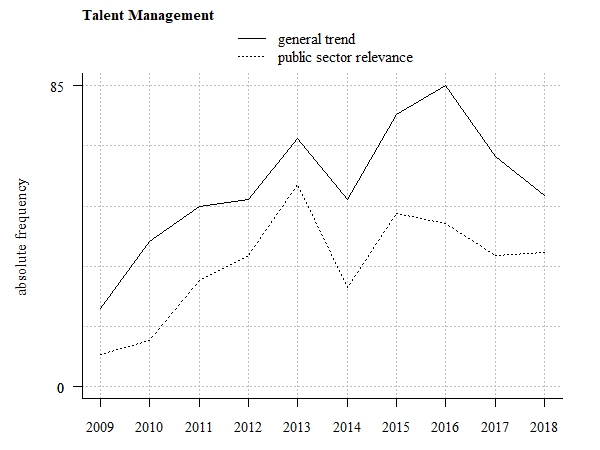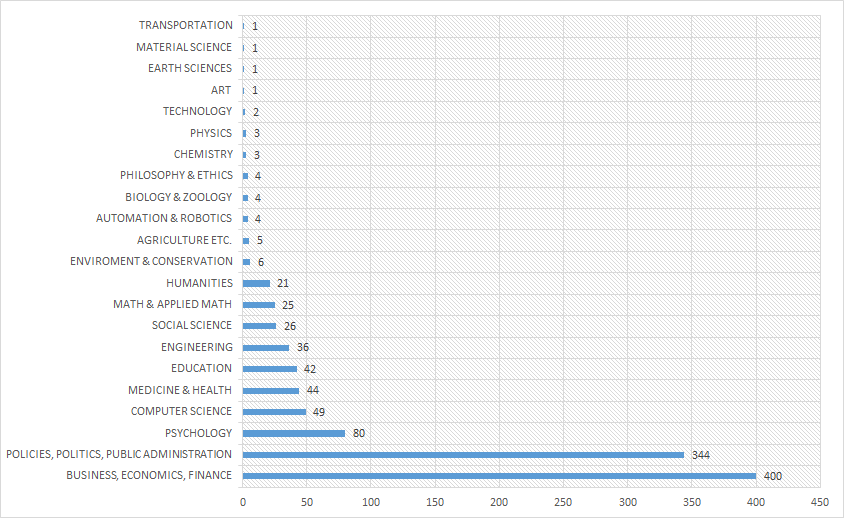Open data - Download the Knowledge base
You are free to download the data of this Knowledge base.
To do this you must be an authenticated user: log in or sign in now.
All the data are licensed as Creative Common CC-BY 4.0.
In times of demographic change and a shortage of skilled workers, it is particularly difficult to find suitable personnel – this also applies to the public sector. Talent Management is of strategic relevance, refers to the anticipation of required human capital for an organization and aims to get “the right person in the right job at the right time”[1]. With the help of talent management, competitive advantages and long-term organisational success can be promoted.
Public sector must find a way to assert itself as an attractice employer and identify, train, promote and retain talents in order to keep up in the “war for talents” [2]. One possibility of Talent Management in the public sector are, for example, trainee programs.
[1 ]Capelli, P., Keller, J.R.: Talent Management: Conceptual Approaches and Practical Challenges, Annual Review of Organizational Psychology and Organizational Behavior, 1, 305-331.
[2] Michaels, E., Handfield, J. H. & Axelrod, B. (2001): The war for talent, Harvard Business School, Boston.


| Agenda Setting | Policy Design and Analysis | Policy Implementation | Policy Monitoring and Evaluation |
|---|
You are free to download the data of this Knowledge base.
To do this you must be an authenticated user: log in or sign in now.
All the data are licensed as Creative Common CC-BY 4.0.